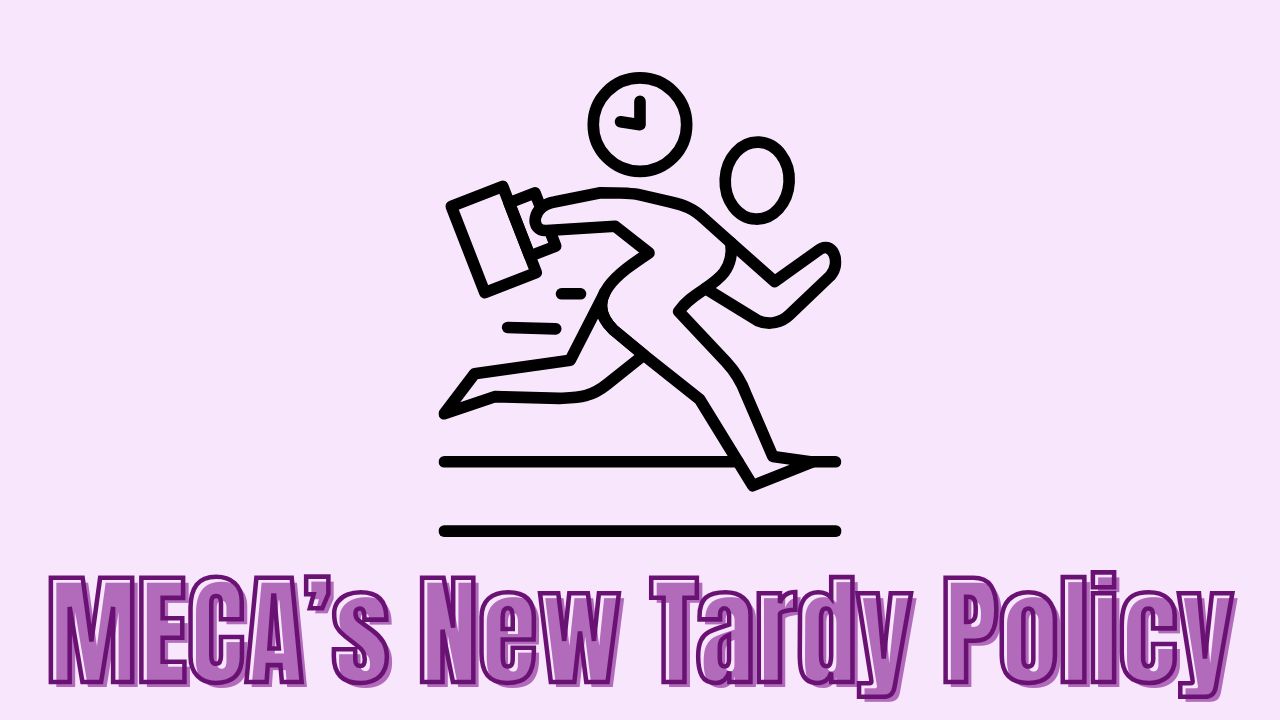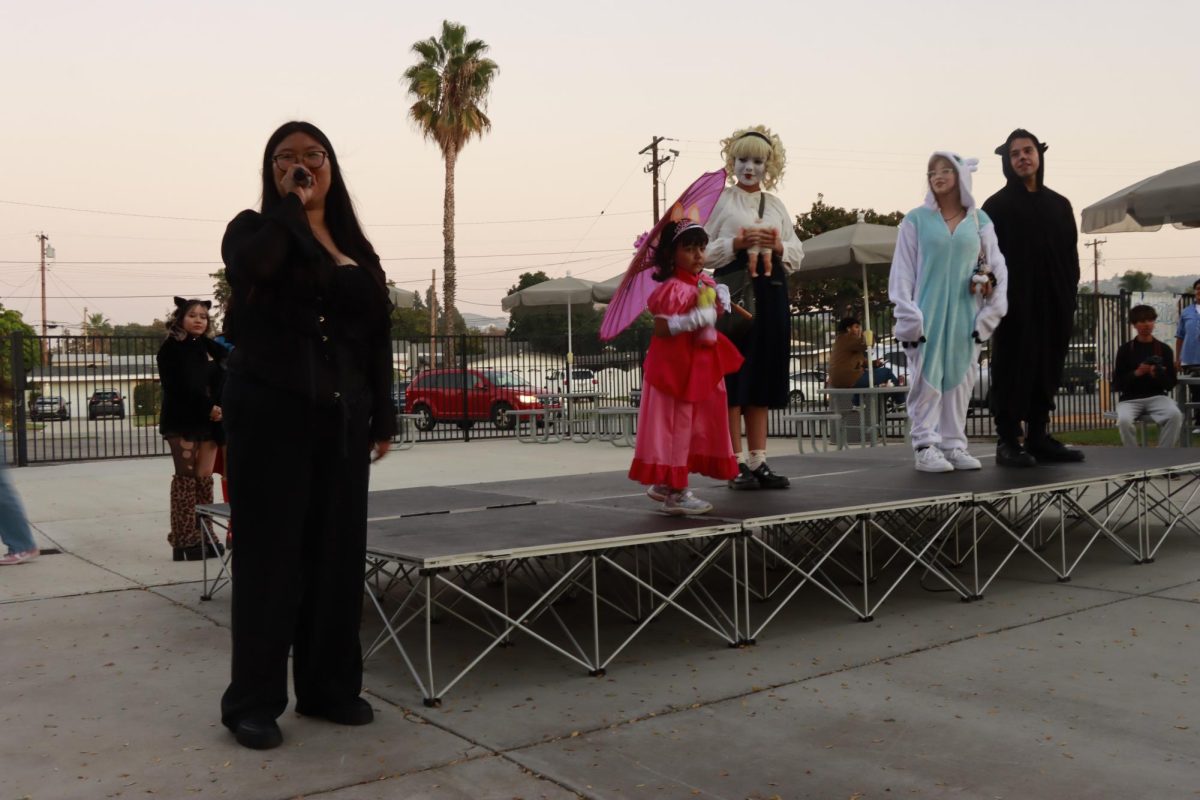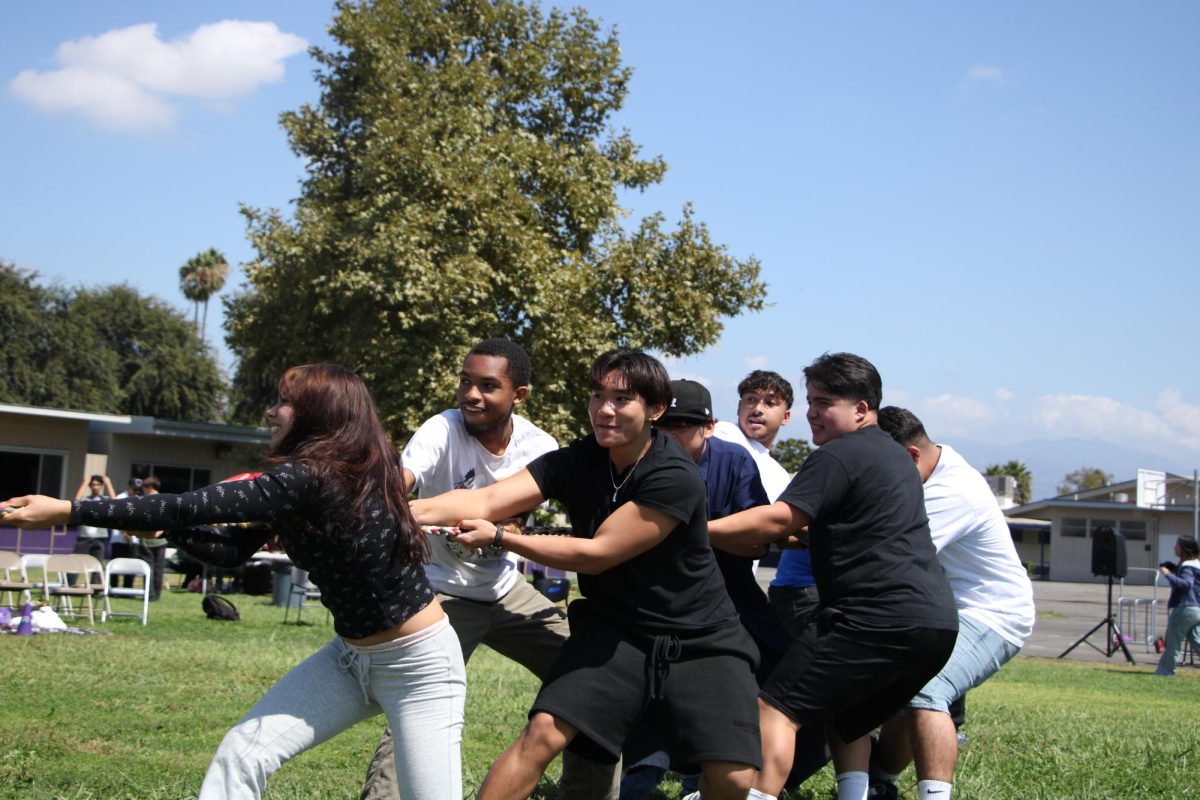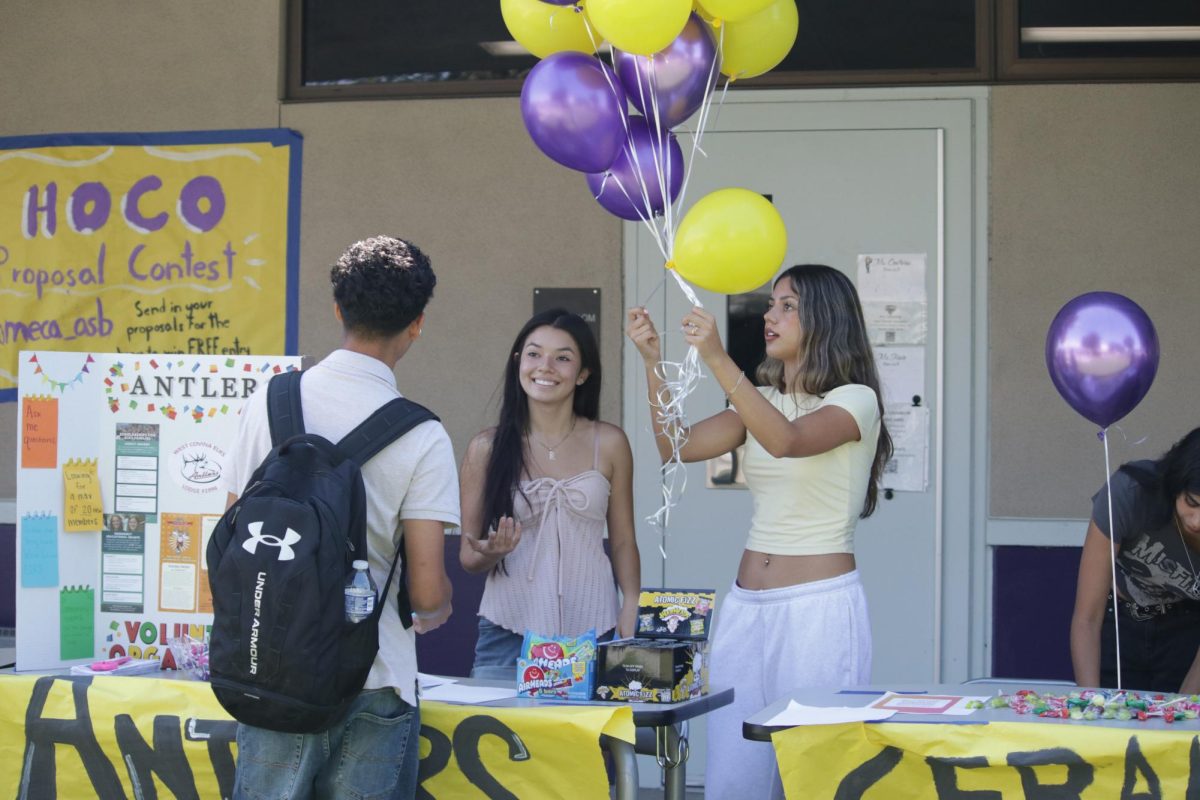On Oct. 6, Mt. SAC Early College Academy (MECA) students were shocked when they learned that a new tardy policy would be in effect the next school week. Amongst the hallways and inside bathrooms, posters were hung on the walls, informing students of the new policy to come.
The new policy, which took effect on Oct. 13, was created to prevent students from being late to class or risk bigger consequences.
“Being on time to class is an important life skill, and we want to help our students build strong habits that will serve them well in school and beyond,” wrote Assistant Principal Dr. Martinez in an email to MECA staff.
If students are late to class, they get marked as “tardy.” After the third tardy, teachers will have a meeting with the student about being late; by the fifth tardy, Martinez will alert the guardians of the student. This is similar to MECA’s past policy, where the families were alerted if a student was constantly late.
“I came from being at very large comprehensive high schools, and tardy policies and attendance policies are much more structured and in place,” said Martinez. “When I got here, I kind of saw that there really wasn’t a tardy policy in place, so I had to create one…I didn’t want to have something where it was taking away, like a lunch detention.”
With the new policy, community service is a form of punishment for tardy students. By the eighth tardy, students must serve 15 minutes of community service; from nine to 12 tardies, students must complete 30 minutes of community service; and from 13-16 tardies, students serve 45 minutes of community service per tardy.
“Every Monday morning, I get a report…So like today, I did the first call to a parent to let them know, like, ‘Hey, you know your kid has, you know, five tardies,” said Martinez.
Community service can be completed by helping teachers or office staff with activities, including organizing books, alphabetizing papers, and helping with cleanup. After being assigned community service, students get a paper that assigns them the time they need to complete and get it signed within two weeks; otherwise, further consequences may occur.
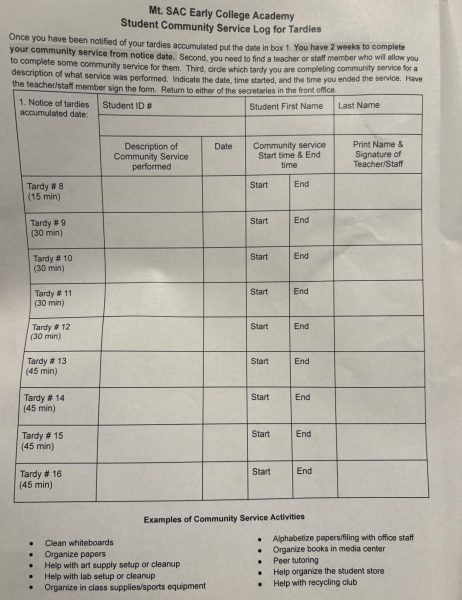
“If they haven’t made any attempt to do it at all within those two weeks, then we’ll start doing things like loss of a dance, or a field trip, or something like that,” said Martinez.
Some students, such as senior Nini Ueda, believe that the tardy policy is unfair and that the punishments should depend on when the student is late to class.
“It should be more looked at as like case by case,” said Ueda. “If there’s like, a student that could that’s consistently like on time in the mornings, but then late to every other class, that I think maybe the tardy policy should apply to them, but like, I think it just depends on the individual…because every person, every case, every situation, is going to be different.”
Students can complete their service during free periods, before school, or after school if the teacher permits it. Students will not get credit for service during their peer tutoring class.
Since the tardy policy has been announced, some students like Ueda have disagreed with having community service as punishment, believing it frames community service in a bad light.
“It’s like villainizing community service, which is something that we should want to do, and it’s kind of just putting it into a negative connotation,” Ueda said. “I feel like putting the label of community service on that may be a little bit misleading.”
However, Gabe Nichols, history teacher, said that it all depends on the way you look at it, and that students are making up for the time taken from teachers.
Martinez added that this new policy will teach students the importance of being punctual. “If you understand, like, you’re also in a unique campus where you’re already taking college courses, and you’re also of the age where you can have a job. So if you show up to your job late every day, how long do you think you’re going to have that job?”
So far, no students have been given community service, and Martinez has already noted the effect the new tardy policy has had at MECA: “Since you know the implementation of it, I have seen a decrease in the number of tardies. So that means that, you know, maybe it’s starting to work.”

